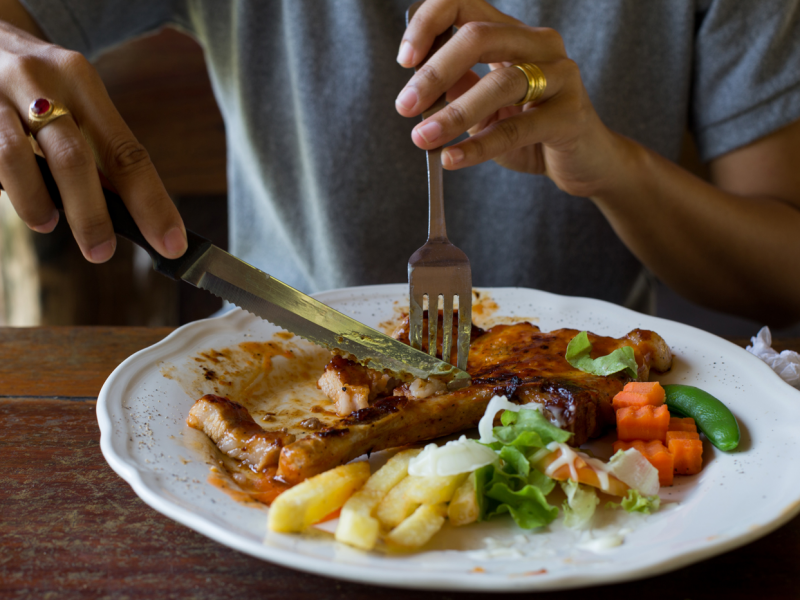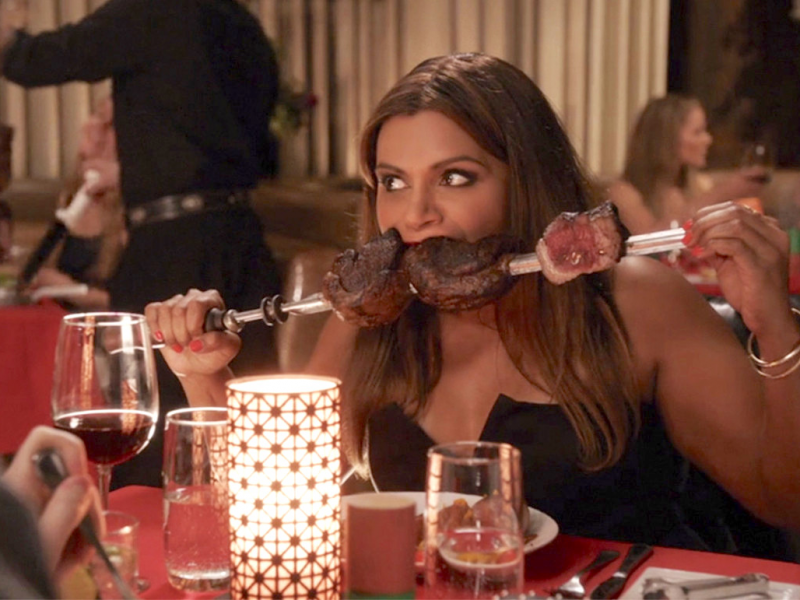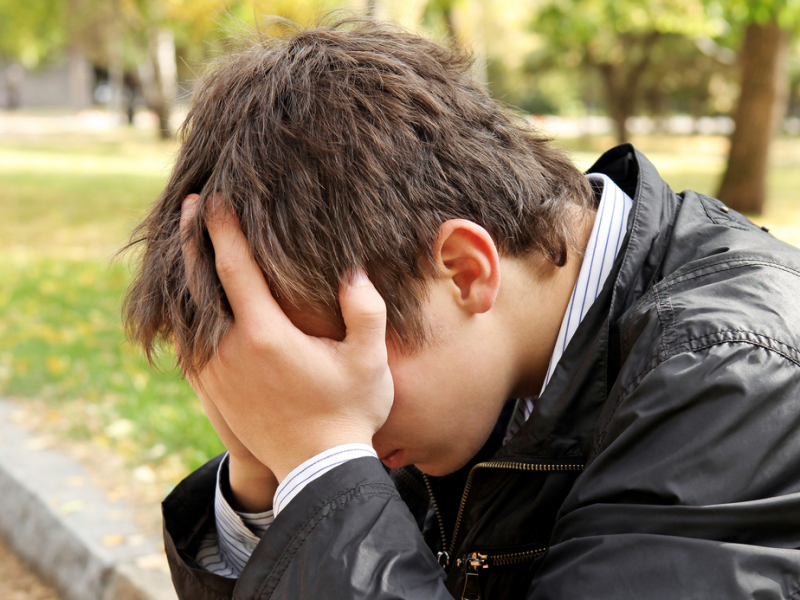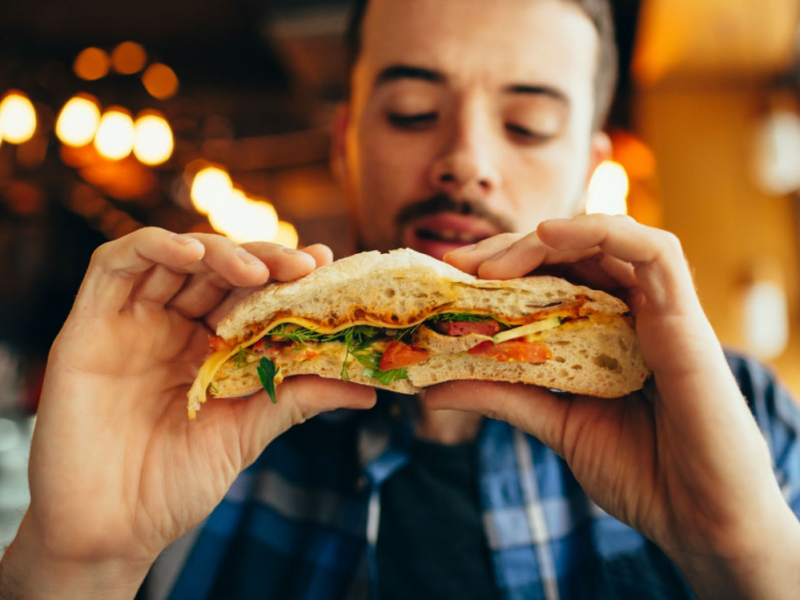- Feeling hungry even after eating a full meal is fairly common.
- If you feel hungry after a meal, it’s possible that your meal didn’t contain enough protein, fiber, or healthy fats.
-
It’s also possible to feel hungry after eating if you are dehydrated or stressed.
In most cases, the goal of eating food is to feel less hungry – or, ideally, not hungry at all – when you are done.
But, for many people, this isn’t always the case. It is possible to eat a whole meal, full of things that should fill you up, and, by the end of it, feel like you could eat a whole other meal.
If you've ever felt this way, you may take comfort in knowing you definitely aren't alone. INSIDER talked with Brigitte Zeitlin, a registered dietician and owner of BZ Nutrition, to find out why you might not feel full after eating a meal - and what you can do about it.
Feeling satisfied after a meal doesn't always depend on how many calories are in it

Rather, it depends on how quickly your body metabolizes the nutrients in the meal.
Our bodies break down and digest different foods at various rates," Zeitlin told INSIDER. "Foods that take longer to break down and digest are what keep us fullest for longer periods of time."
So, if you eat foods that get digested quickly (AKA "simple" carbohydrates such as white bread and pasta) you may feel hungry again in an hour.
The probability you'll feel full after a meal usually depends on if the meal contains enough fiber, protein, and fat

"Feeling satiated and satisfied is the whole point of eating," Zeitlin told INSIDER. "We want to enjoy what we're eating, get enough energy to carry out the next few hours, and satiate our hunger."
To accomplish this, Zeitlin recommended eating meals and snacks comprised of what she calls a "filling trinity" - fiber, protein, and healthy fats.
"Fiber (veggies, fruit, whole grains) is what will give our meal bulk and substance, protein (legumes, seeds, eggs, fish, chicken/meat, dairy) will give us that satisfied feeling, and healthy fat (nuts, seeds, avocado, olive oil) will keep us feeling satiated for the longest amount of time," Zeitlin told INSIDER.
Even if you're eating enough, it's possible that any hunger you feel after eating is due to what you're drinking throughout the day - or, rather, not drinking throughout the day.
"Our bodies interpret thirst for hunger, so you may be feeling hungry even though you are actually thirsty," Zeitlin told INSIDER. "If you aim to drink eight to 10 glasses of water [a day] you should be able to tell the difference between thirst and true hunger."
Zeitlin also recommends checking in on your stress levels, especially if you know you've eaten enough foods with sufficiently filling nutrients that day

"Sometimes when we are stressed, depressed, bored, or anxious, we turn to some extra snacking/eating despite not truly being hungry," Zeitlin told INSIDER. "So if you're feeling hungry immediately after your meal, then ask yourself if you ate the right combo and then if you've been drinking enough water. If both of those things have been on point, then ask yourself, 'am I really hungry or is it residual stress?'"
If you aren't quite sure, try to take a quick walk, chat with a friend, or any other technique you use to combat stress. This may lessen your anxiety, which, in turn, could make the desire to snack go away.
Read more: There's a biological reason why we eat more when we're stressed - and it has a lot to do with sleep
Of course, if you still feel hungry, it's possible that you simply haven't eaten enough that day

If that's the case, there's no reason to deny yourself food.
"If you skip meals during the day, you are guaranteeing that you will feel ravenous at the next meal you eat and are bound to overeat and feel like you can't fill up," Zeitlin told INSIDER. "Eating smaller, more frequent meals during the day will get your hunger back on track and get you more aware of where your hunger is coming from so that you can give your body what it actually needs."
To avoid hunger confusion, Zeitlin recommended eating three or four small meals and/or snacks a day.
"This will help to keep your body feeling fuller (and more energetic) throughout the day and work as an innate guide to finding your true hunger pangs," she told INSIDER.
Visit INSIDER's homepage for more.
